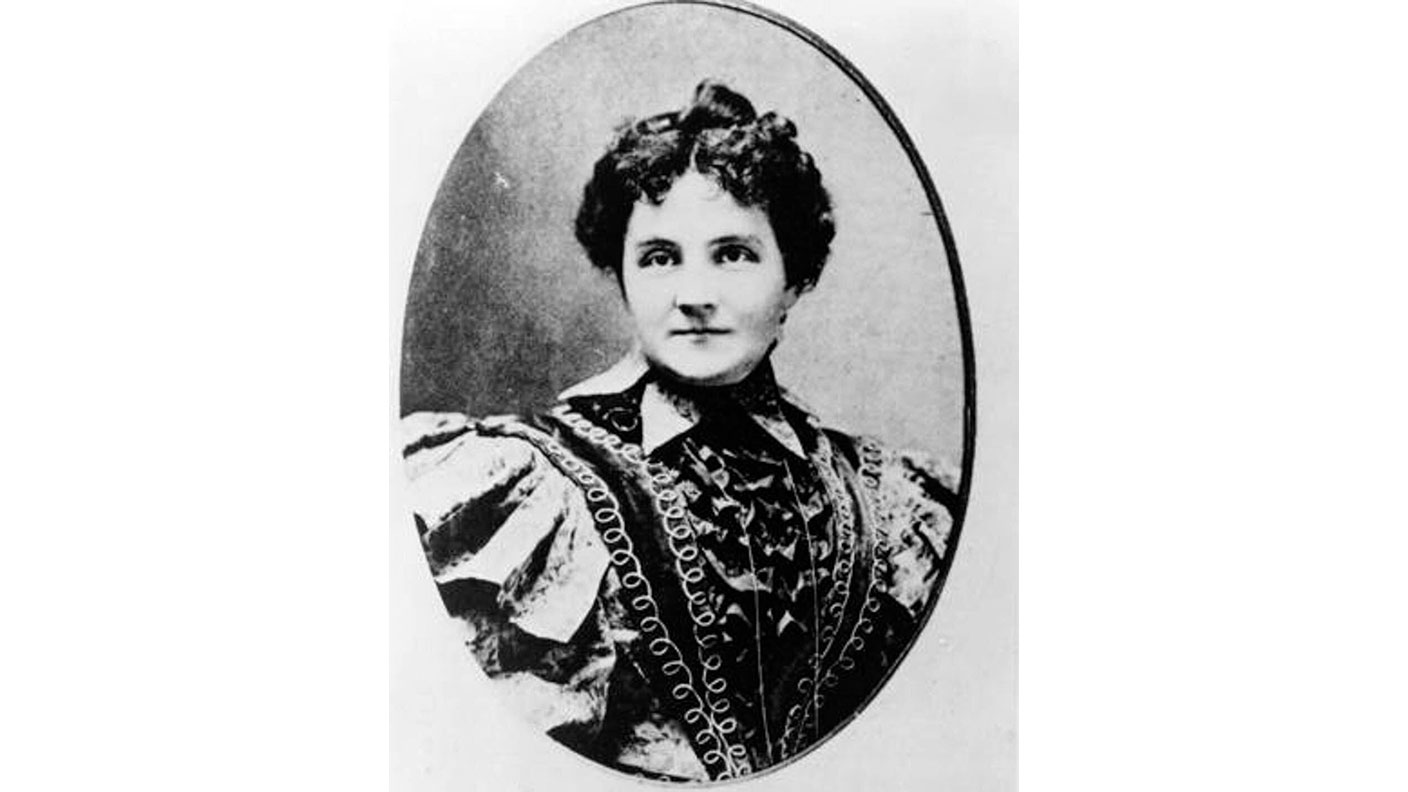Great frauds in history: how Elizabeth Bigley, AKA “Madame DeVere”, spirited away cash
Serial fraudster Elizabeth Bigley AKA, the “psychic” Madame Lydia DeVere, conned people into believing she was the long lost daughter of fabulously wealthy industrialist Andrew Carnegie.


Get the latest financial news, insights and expert analysis from our award-winning MoneyWeek team, to help you understand what really matters when it comes to your finances.
You are now subscribed
Your newsletter sign-up was successful
Want to add more newsletters?
Elizabeth Bigley was born in Ontario, Canada in 1857. In 1879 she was arrested for forgery for passing off worthless cheques to merchants, but was acquitted on grounds of her age and insanity. She later worked in Cleveland, Ohio as a psychic, calling herself Madame Lydia DeVere. In 1889 she was again arrested and this time convicted of forgery and spent several years in prison before being pardoned by the then governor of Ohio (later President) William McKinley in 1893. By 1897 she was back in Cleveland, living under an assumed name, with her new husband Dr Leroy Chadwick. He married her believing her to be the illegitimate daughter of wealthy industrialist Andrew Carnegie.
What was the scam?
The now Mrs Chadwick claimed that Carnegie felt so guilty about not publicly acknowledging her as his daughter that he was willing to give her large amounts of money. After exhausting her husband’s fortune, she persuaded several local banks and wealthy individuals to lend her money. As collateral, she provided promissory notes signed with Carnegie’s name and an unopened package supposedly containing a trust fund of $7.5m ($207m in today’s money) in railroad shares and bonds. In reality, Carnegie was unaware of her existence and the notes were forgeries. The money funded an extravagant lifestyle, which enabled her to borrow even more.
What happened next?
Her generosity with money won her many admirers, but her creditors grew anxious and, by November 1904, banker Herbert Newton sued for repayment of a $190,000 ($5.63m) loan. Carnegie disowned both her and the notes, and her railroad bonds and shares were found to be worthless. Early in 1905 she was arrested carrying $100,000 in cash and sentenced to several years in jail, where she died.
Try 6 free issues of MoneyWeek today
Get unparalleled financial insight, analysis and expert opinion you can profit from.

Sign up to Money Morning
Don't miss the latest investment and personal finances news, market analysis, plus money-saving tips with our free twice-daily newsletter
Don't miss the latest investment and personal finances news, market analysis, plus money-saving tips with our free twice-daily newsletter
Lessons for investors
Estimates suggest Chadwick may have borrowed as much as $1.3m ($29.6m) backed by $12m ($355m) in forged Carnegie notes. Her creditors recovered only a fraction of this. The Citizens’ National Bank, which had loaned $240,000 ($7.1m), was forced into liquidation after its depositors withdrew their money, demonstrating the importance of doing proper due diligence. Even if Chadwick had been a genuine heiress, it was an incredibly irresponsible decision to lend a sum that was four times the bank’s actual capital to a single person.
Get the latest financial news, insights and expert analysis from our award-winning MoneyWeek team, to help you understand what really matters when it comes to your finances.

-
 Student loans debate: should you fund your child through university?
Student loans debate: should you fund your child through university?Graduates are complaining about their levels of student debt so should wealthy parents be helping them avoid student loans?
-
 Review: Pierre & Vacances – affordable luxury in iconic Flaine
Review: Pierre & Vacances – affordable luxury in iconic FlaineSnow-sure and steeped in rich architectural heritage, Flaine is a unique ski resort which offers something for all of the family.
-
 The downfall of Peter Mandelson
The downfall of Peter MandelsonPeter Mandelson is used to penning resignation statements, but his latest might well be his last. He might even face time in prison.
-
 Ayatollah Ali Khamenei: Iran’s underestimated chief cleric
Ayatollah Ali Khamenei: Iran’s underestimated chief clericAyatollah Ali Khamenei is the Iranian regime’s great survivor portraying himself as a humble religious man while presiding over an international business empire
-
 Long live Dollyism! Why Dolly Parton is an example to us all
Long live Dollyism! Why Dolly Parton is an example to us allDolly Parton has a good brain for business and a talent for avoiding politics and navigating the culture wars. We could do worse than follow her example
-
 Michael Moritz: the richest Welshman to walk the Earth
Michael Moritz: the richest Welshman to walk the EarthMichael Moritz started out as a journalist before catching the eye of a Silicon Valley titan. He finds Donald Trump to be “an absurd buffoon”
-
 David Zaslav, Hollywood’s anti-hero dealmaker
David Zaslav, Hollywood’s anti-hero dealmakerWarner Bros’ boss David Zaslav is embroiled in a fight over the future of the studio that he took control of in 2022. There are many plot twists yet to come
-
 The rise and fall of Nicolás Maduro, Venezuela's ruthless dictator
The rise and fall of Nicolás Maduro, Venezuela's ruthless dictatorNicolás Maduro is known for getting what he wants out of any situation. That might be a challenge now
-
 The political economy of Clarkson’s Farm
The political economy of Clarkson’s FarmOpinion Clarkson’s Farm is an amusing TV show that proves to be an insightful portrayal of political and economic life, says Stuart Watkins
-
 The most influential people of 2025
The most influential people of 2025Here are the most influential people of 2025, from New York's mayor-elect Zohran Mamdani to Japan’s Iron Lady Sanae Takaichi